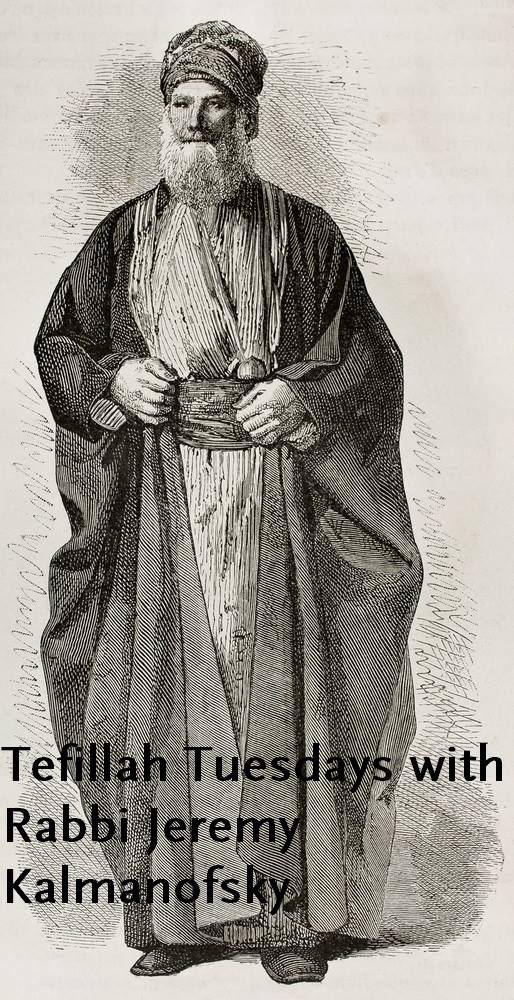The Bible’s most common poetic maneuver is “parallelism,” in which a pair of phrases linked together for poetic affect. Often the two phrases are synonymous, repeating the same idea [e.g. Amos 5.24: “Let justice flow like water, righteousness like a mighty stream”]; others are antithetical, drawing a contrast [e.g. Proverbs 10.7: “May the memory of the righteous be a blessing; may the name of the wicked rot”]. Still other times the second clause builds upon the first, adding a new dimension or completing the thought.
Almost every single verse in Shirat HaYam, the “Song of the Sea,” employs some form of parallelism. Today’s post will review one such case and consider the spiritual dynamics of how to daven this line.
Here is Exodus 15.4: זה א’לי ואנוהו, א’להי אבי וארממנהו. Zeh Eli v’anveihu, Elohei Avi va’arom’menhu.” This is my God, and I will beautify Him; the God of my ancestor, and I will exalt Him.”
I discussed the first clause last week, noting it as a source for the idea of hiddur mitzvah, the demand to make the mitzvot aesthetically beautiful. Today I want to focus on the juxtaposition between “my God” and the “god of my ancestor.” That contrast is familiar to anyone who knows the classical prayer book. “Our God and God of our ancestors,” begins the Amidah. “Our redeemer and the redeemer of our ancestors” comes right before that in the morning service.
Phrases like these invoke several themes in the davener’s heart and mind. At the surface level of Jewish language, it invokes the concept of zekhut avot, or ancestral merit. We come before God not only as individuals, but also as the descendants of giant spiritual forebears. It speaks to the continuity of Jewish religious civilization: we come as participants in an on-going culture of the people Israel saying these words, from earth to heaven, for centuries. It might also imbue us 21st century people with a little humility: God speaks not only to us, with all our sophistication and technological mastery, but also to the simple farmers, shoemakers and shopkeepers in Babylonia, France, Morocco, and Poland through the ages.
For me as a davener, our verse from Song of Sea also invokes a certain religious tension between seeing myself as an individual and as a member of a group. I want my relationship with Hashem to be, on the one hand, an expression of my unique and idiosyncratic spirit; and on the other hand, I want it to be conditioned and shaped by my membership in the continuous ancestral community of Israel. Eli and Elohei Avi, “my God,” and “God of my ancestor.” Jewish davening must have both.
This tension is captured in a wonderful teaching of R. Israel Baal Shem Tov [1699-1760], the founder of Hasidism [Sefer Ba’al Shem Tov, in the section “Pillar of Prayer,” Parshat Noach, #141].
“The reason we say both ‘our God and God of our ancestors’ is that there are two types of people. One type has faith because they walk the path trodden by their ancient ancestors. And for this reason, their faith is strong. The second type attains faith through their own search. The first sort of believers have the advantage that they cannot be seduced into unbelief by any number of sophisticated counter arguments, because they have inherited faith from their ancestors. But it has the disadvantage that faith becomes merely conventional, simply behavioral, without understanding or insight. The second type have their advantage, since their faith comes from their own search, they are very strong, and filled with love for God. But they have their own disadvantage, in that it is easy to seduce them into other views with counter arguments.
“But nothing can be better than a faith that has both these characteristics, strongly relying on one’s ancestors and one’s own personal search for faith. This is true good and complete faith.”
Today’s daveners, I hope you find both kinds of faith, the ones you inherit and the ones you create.





